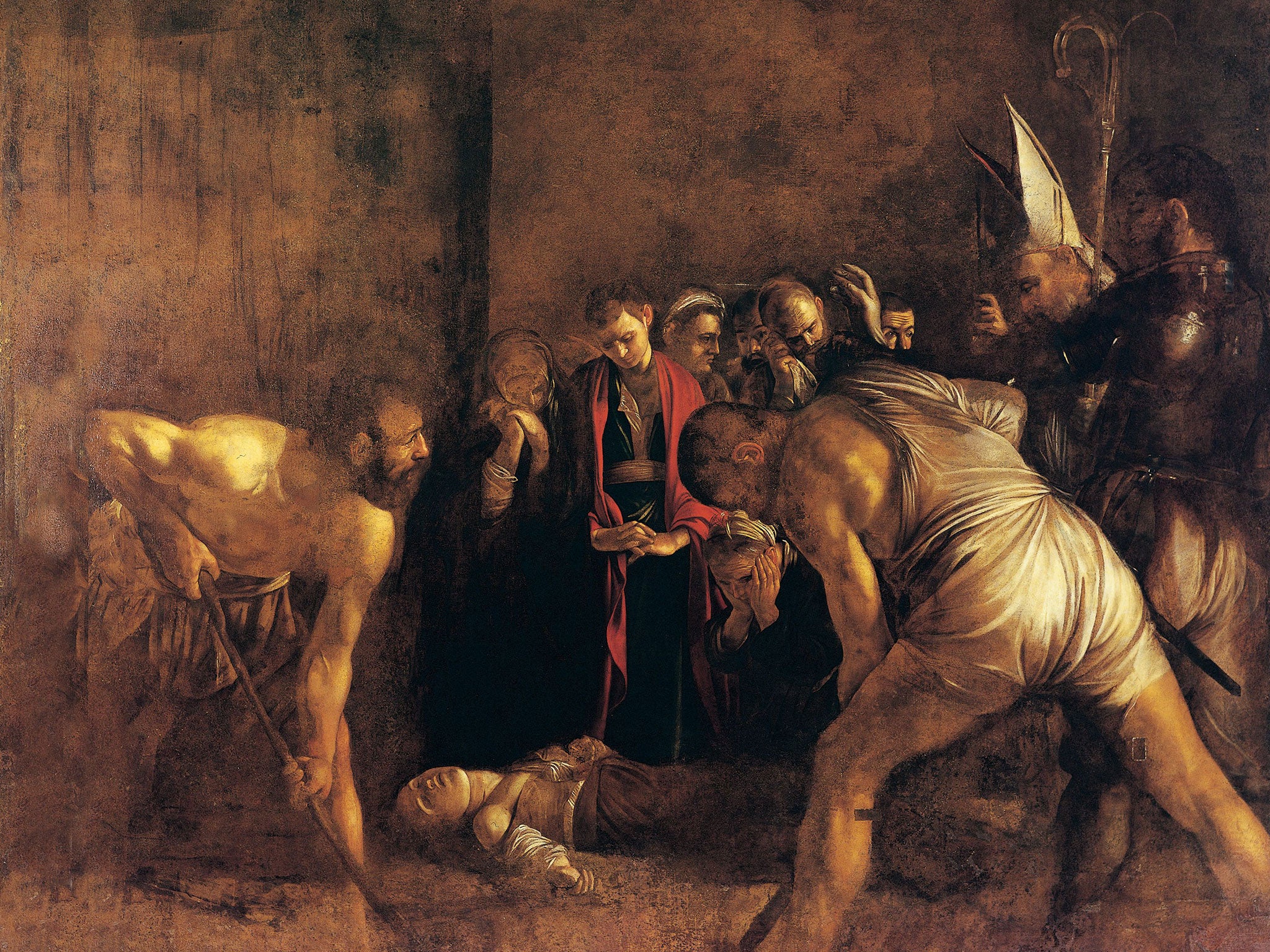Caravaggio row: Two Sicilian churches at war over ownership of The Burial of Saint Lucy masterpiece
Politicians, locals, art historians and tour guides are picking sides as the battle hots up

Your support helps us to tell the story
From reproductive rights to climate change to Big Tech, The Independent is on the ground when the story is developing. Whether it's investigating the financials of Elon Musk's pro-Trump PAC or producing our latest documentary, 'The A Word', which shines a light on the American women fighting for reproductive rights, we know how important it is to parse out the facts from the messaging.
At such a critical moment in US history, we need reporters on the ground. Your donation allows us to keep sending journalists to speak to both sides of the story.
The Independent is trusted by Americans across the entire political spectrum. And unlike many other quality news outlets, we choose not to lock Americans out of our reporting and analysis with paywalls. We believe quality journalism should be available to everyone, paid for by those who can afford it.
Your support makes all the difference.Four hundred years after the end of his action-packed life, Caravaggio is at the centre of a new row as two churches in Sicily battle over the ownership of one of his greatest paintings.
The Burial of Saint Lucy, which the baroque anti-hero painted two years before his death in 1610, has been moved several times for restoration, but now finds itself the centre of spat between churches in rival districts in the port of Syracuse.
One is the Basilica of Santa Lucia al Sepolcro in the Borgata district, which is the painting’s original home. But also claiming it is the Santa Lucia alla Badia church on the little adjoining island of Ortigia, whose tiny winding streets form the city’s original historic centre. It currently has the artwork and wants to keep it.
Politicians, locals, art historians and tour guides are picking sides as the battle hots up, La Repubblica reported this week.
Caravaggio now enjoys superstar status – a Canadian study published in 2010 suggested that the number of publications devoted to him was greater than that for Renaissance giant Michelangelo. Thus the rival churches – and districts – in Syracuse appear determined to have the star exhibit, which Caravaggio painted when he arrived in Sicily after fleeing the island of Malta. In large part due to his tempestuous nature, having to leave the city where he lived was a recurring event for Caravaggio, who was born Michelangelo Merisi. While he was active in Rome, Naples and Sicily, as well as Malta, at various points during his lifetime, Caravaggio’s involvement in a number of violent incidents over the years meant a number of changes of residence.
Ortigia, a neighbourhood of honey-coloured palazzi and churches in the Sicilian baroque style, has had something of a makeover in recent years. It now attracts hundreds of thousands of tourists a year, with an estimated three thousand a day visiting the Santa Lucia alla Badia church to see the Caravaggio painting.
But Santa Lucia al Sepolcro and its supporters in the Borgata want a piece of the action. Luigi Puzzo, president of the Association of the Faithful of Santa Lucia al Sepolcro, has told Siracusa News that he hoped the return of the painting “to its natural home” would help the rebirth of the neighbourhood as it had done in Ortigia. It was moved from there in 2010 when restoration work began on the dilapidated structure.
Maria Rita Sgarlata, a former regional councillor for culture, has collected two thousands signatures calling for the painting to be returned to the Basilica. And some say the artwork’s displacement to the Santa Lucia alla Badia has led to it obscuring another painting in the same church.
However, the National Directive of Italian Guides says the painting should in stay Ortigia, claiming it would be left isolated in the Basilica.
So far, experts at the Regional Restoration Centre of Palermo have had the last word. Their recent checks have suggested conditions in the Basilica mean in should not be returned there for now. They say the environment in the Santa Lucia alla Badia, while far from ideal, are less humid, and the painting is less at risk.
The work, which depicts the burial of the important Sicilian saint Lucy, was already in poor condition following a less-than-successful restoration in 1979.
Join our commenting forum
Join thought-provoking conversations, follow other Independent readers and see their replies
Comments